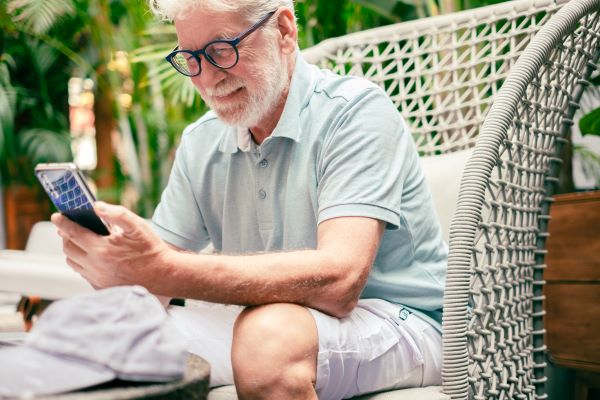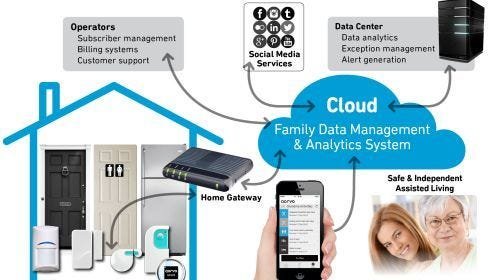Many seniors want to live in their own homes. They like to feel safe and comfortable. Smart home systems can help seniors live alone with less worry.
Smart home systems use technology to make homes easier to manage. They help with daily tasks and keep seniors safe. Here are some ways these systems support independent living for seniors.
1. Easy Control of Home Devices
Smart home systems let seniors control lights, fans, and other devices using their voice or phone. This is very helpful for seniors who have trouble moving.
- Turn lights on or off without getting up.
- Adjust the room temperature easily.
- Control TVs and radios with simple commands.
This helps seniors feel more comfortable and independent in their own homes.

Credit: www.acornstairlifts.com
2. Safety Monitoring and Alerts
Many smart homes have sensors and alarms. These devices watch for dangers like fire, gas leaks, or water problems.
- Smoke detectors send alerts to phones.
- Water sensors can stop leaks early.
- Gas detectors warn about dangerous fumes.
These alerts help seniors act fast and stay safe.
3. Fall Detection and Emergency Help
Falls are a big risk for many seniors. Smart home systems can detect falls and send help quickly.
- Wearable devices or sensors can sense a fall.
- They can call emergency services or family members.
- Some systems ask the senior if they are okay.
This quick response can save lives and reduce injuries.
4. Medication Reminders
Taking medicine on time is important for health. Smart home systems can remind seniors to take their pills.
- Alarms sound when it is time for medicine.
- Some systems can even track if medicine was taken.
- Reminders can be set for many times a day.
This helps seniors manage their health better without help.
5. Easy Communication with Family and Caregivers
Smart homes can help seniors talk to family and helpers. Video calls and messages are easy to use.
- Voice commands can start a call quickly.
- Large screens make it easy to see loved ones.
- Some systems can alert caregivers if help is needed.
This keeps seniors connected and less lonely.
6. Lighting and Security Control
Good lighting helps prevent falls and accidents. Smart homes can turn lights on when needed.
- Motion sensors turn lights on at night.
- Outdoor lights can keep the home safe.
- Door locks can be controlled remotely.
Seniors can feel safer and more comfortable inside their homes.
7. Smart Appliances for Daily Tasks
Smart kitchen devices help seniors prepare food safely and easily.
- Ovens and microwaves can be controlled remotely.
- Fridges can remind about food expiration.
- Robotic vacuum cleaners keep floors clean without effort.
This support helps seniors manage their home better.
8. Energy Management and Cost Savings
Smart systems can save energy and lower bills. They turn off devices when not needed.
- Thermostats adjust temperature based on when seniors are home.
- Lights and appliances turn off automatically.
- Energy use reports help track savings.
This means seniors spend less money and help the environment.
9. Personalized Settings for Comfort
Smart homes learn seniors’ habits and adjust settings automatically.
- Lights dim in the evening.
- Temperature changes during the day for comfort.
- Music or TV turns on at favorite times.
This creates a cozy and familiar home atmosphere.

Credit: www.liferun.com
10. Easy to Use and Adapt
Many smart home systems are simple to use. Seniors do not need to be tech experts.
- Voice commands make operation easy.
- Smartphones and tablets provide simple controls.
- Systems can be customized to needs and abilities.
They grow with seniors and make life easier every day.
Summary Table: Benefits of Smart Home Systems for Seniors
| Feature | Benefit | How it Helps Seniors |
|---|---|---|
| Device Control | Easy home management | Less physical effort needed |
| Safety Alerts | Early warning of danger | Quick action to avoid harm |
| Fall Detection | Emergency response | Help arrives fast after accidents |
| Medication Reminders | Better health management | Medicine taken on time |
| Communication | Stay connected | Less loneliness and isolation |
| Lighting and Security | Safe environment | Prevents falls and intrusions |
| Smart Appliances | Help with chores | Easier daily living tasks |
| Energy Management | Cost savings | Lower bills and eco-friendly |
| Personalized Settings | Comfort and ease | Feels like home tailored to needs |
| Easy to Use | Accessible technology | Simple for all skill levels |
Final Thoughts
Smart home systems offer many benefits for seniors. They help seniors live safely and comfortably alone. These systems support daily tasks and provide peace of mind.
With easy control, safety alerts, and help in emergencies, seniors can stay independent longer. The technology is simple and adapts to each person’s needs.
Smart homes make life easier. They help seniors feel safe and cared for. This support allows seniors to enjoy their homes more every day.
Frequently Asked Questions
How Do Smart Home Systems Help Seniors Live Independently?
Smart home systems make daily tasks easier and improve safety for seniors at home.
What Smart Devices Support Senior Safety At Home?
Devices like emergency buttons, motion sensors, and smart cameras help keep seniors safe.
Can Smart Homes Reduce Senior Caregivers’ Workload?
Yes, automation and alerts help caregivers monitor seniors remotely, reducing stress and visits.
How Do Smart Home Systems Improve Seniors’ Health Monitoring?
They track vital signs, remind medication, and send alerts for health emergencies.

